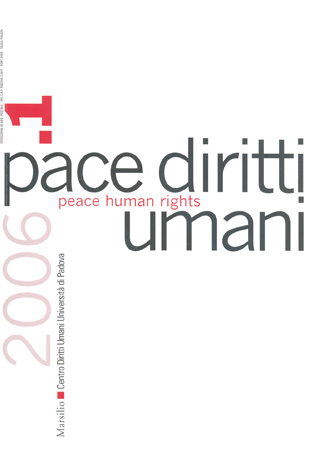Raccolte

Sei vie per una religione non fanatica
- Contenuto in
- Pace diritti umani - Peace Human Rights, 1/2006
- Tipologia pubblicazione
- Articolo / Saggio
- Pagine
- 7-27
- Lingua
- IT
Six Ways to Oppose Fanaticism
Giuseppe Grampa
Fanaticism (from Latin: fanum-divinity’s venue) is a pathology peculiar to religions, it is the claim to seize and use divinity for their particular plans. Fanaticism is a disease that marks the history of humanity. Today it expresses a renewed and dramatic strenght. In the present essay the author endeavours to explore six ways to stem fanaticism. The first way is that of dialogue that especially after the Vatican Council II the Catholic Church has irreversibly chosen. The second is that of the respect on God transcendence, assuming that God will never be something which man or power can dispose. The third way is that of the symbolic language that is proper of the religious experience. This language does not pretend to exhaust the Immense Object and then to appropriate it. The fourth way passes through the respect of the freedom of conscience. By their nature fanaticists phenomena are collective, mass phenomena, that are made possible when the critical judgement of conscience is submerged by social pression. For sure to hold personal conscience is a valuable means to oppose fanaticism. The fifth way lies in the distinction of political power and religion. Respect of political life autonomy avoids theocratic schemes which are often fanatic. Politics inspired from laicity does not use religion for its interests and does not pretend to be totalitarian, it recognises the very role of conscience and of religious values. The sixth and last way is that of refusing whatever form of violence, in particular the resort to war to resolve conflicts. The Christian conscience has made a long and not easy journey towards aknowledging that both just war and holy war do not exist: only peace is holy.

